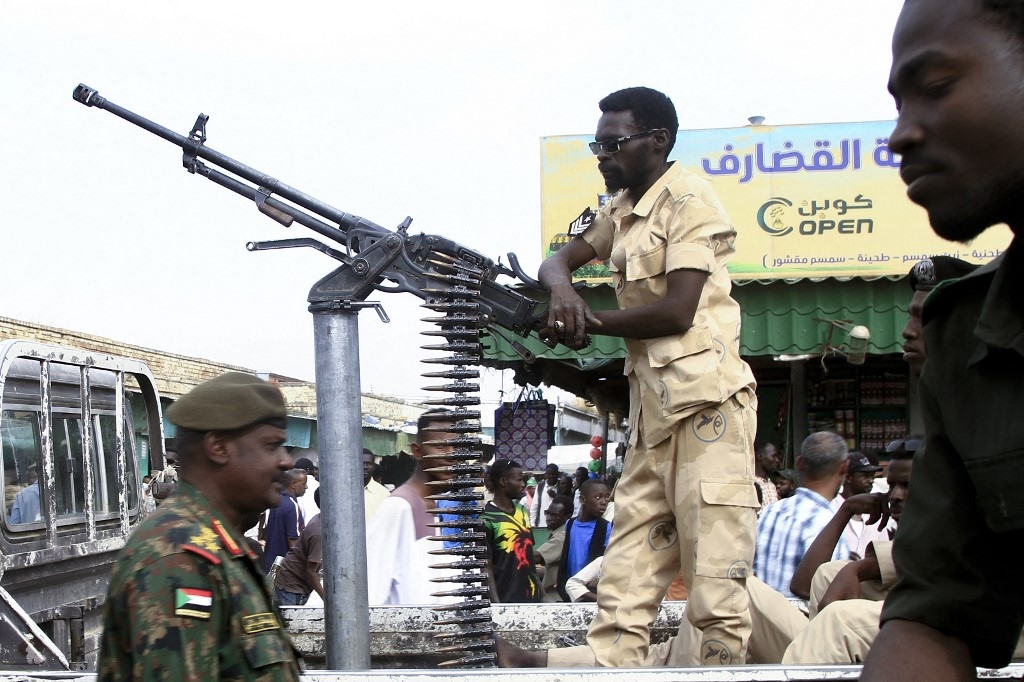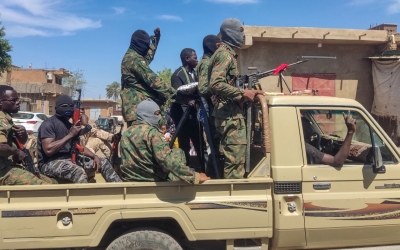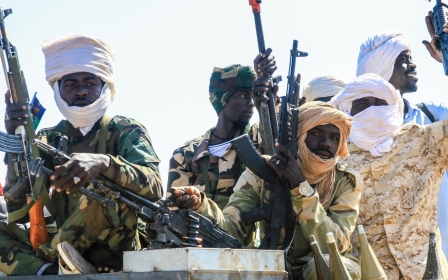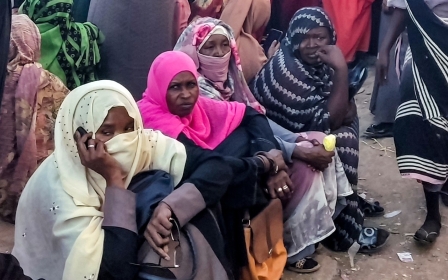Sudan war: What a year of conflict has done to the country in numbers

One year on from the beginning of Sudan's civil war, much of the country has been left in ruins and the death toll continues to rise.
The war between the paramilitary Rapid Support Forces (RSF), led by General Mohamed Hamdan Dagalo, better known as Hemeti, and the Sudanese Armed Forces (SAF), headed by General Abdel Fattah al-Burhan, began on 15 April last year.
The statistics are stark behind the images and stories of conflict.
According to the Armed Conflict Location & Event Data Project (ACLED), which the United Nations cites, there have been more than 15,550 "reported fatalities" in Sudan over a year of war. However that is considered to be much lower than the true death toll.
Most of the violence, ACLED said, was recorded in Khartoum. "Targeted violence in Darfur was twice as likely to be deadly for civilians than targeted violence in other states in Sudan," it said, adding that 32 percent of all reported civilian deaths were recorded in the restive western region.
New MEE newsletter: Jerusalem Dispatch
Sign up to get the latest insights and analysis on Israel-Palestine, alongside Turkey Unpacked and other MEE newsletters
In fact, UN experts in January said 10,000 to 15,000 people were killed in West Darfur's state capital el-Geneina alone. In June and November, Middle East Eye reported on mass killings in the city when the RSF and allied Arab militias targeted members of the Black African Masalit community.
Meanwhile, the war has displaced 10.7 million people, according to the Norwegian Refugee Council, the second highest number this century after the Syrian war. Around 1.7 million of those are in neighbouring countries, particularly Chad and Egypt.
The fighting has also left 25 million Sudanese suffering from hunger or malnutrition, with children dying of starvation across the country.
'Disaster' for children
On Monday, the United Nations's children's agency, Unicef, released a set of statistics about the scale of the disaster in Sudan, particularly its impact on children.
The organisation said an estimated 8.9 million children are currently grappling with acute food insecurity, with 4.9 million now having reached emergency levels.
Just under four million children under five are projected to suffer from acute malnutrition this year.
Around 730,000 children are expected to suffer from life-threatening severe acute malnutrition, while more than 90 percent of the country's 19 million school-age children have no access to formal education.
“This brutal war and potential famine is creating an ominous environment for a catastrophic loss of children’s lives,” Unicef deputy executive director Ted Chaiban said on Monday.
“Almost half of the children suffering from severe acute malnutrition are in areas that are hard to access, where there is ongoing fighting, making their conditions all the more dire.”
Unicef also said it is urgently asking for $240m for the next six months to prevent famine in the 93 most vulnerable places in Sudan, which are home to 3.5 million children under five.
For its part, Doctors Without Borders (MSF) said at least one child dies every two hours at North Darfur's Zamzam displacement camp alone.
The UN has warned that "222,000 children could die of starvation within a few weeks or months" and "more than 700,000 this year".
Aid push
The UN said $2.7bn is needed for aid inside the country, while another $1.4bn is needed for assistance in neighbouring countries that have housed hundreds of thousands of refugees.
A diplomatic source told Reuters that donors would hopefully pledge "well over a billion euros" at an aid conference being held in Paris on Monday.
The EU is set to pledge 350 million euros, while France will add 110 million euros and the United States will invest a total of $147m.
Germany pledged 244 million euros earlier on Monday.
US Special Envoy Tom Perriello last week called the international response so far "pitiful" and warned that "we're at five percent of the needed amount".
"We can manage together to avoid a terrible famine catastrophe, but only if we get active together now," German Foreign Minister Annalena Baerbock said on Monday.
This article is available in French on Middle East Eye French edition.
Middle East Eye delivers independent and unrivalled coverage and analysis of the Middle East, North Africa and beyond. To learn more about republishing this content and the associated fees, please fill out this form. More about MEE can be found here.





